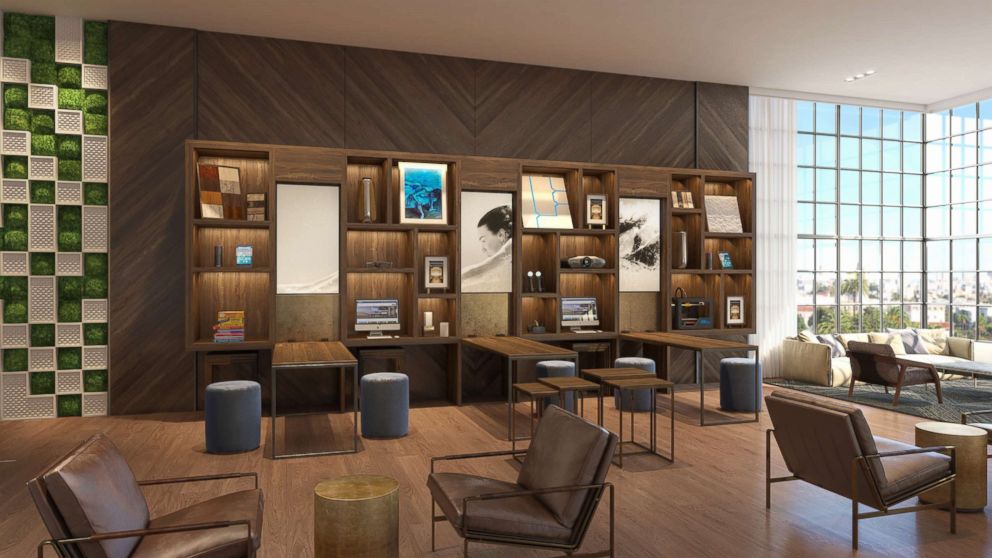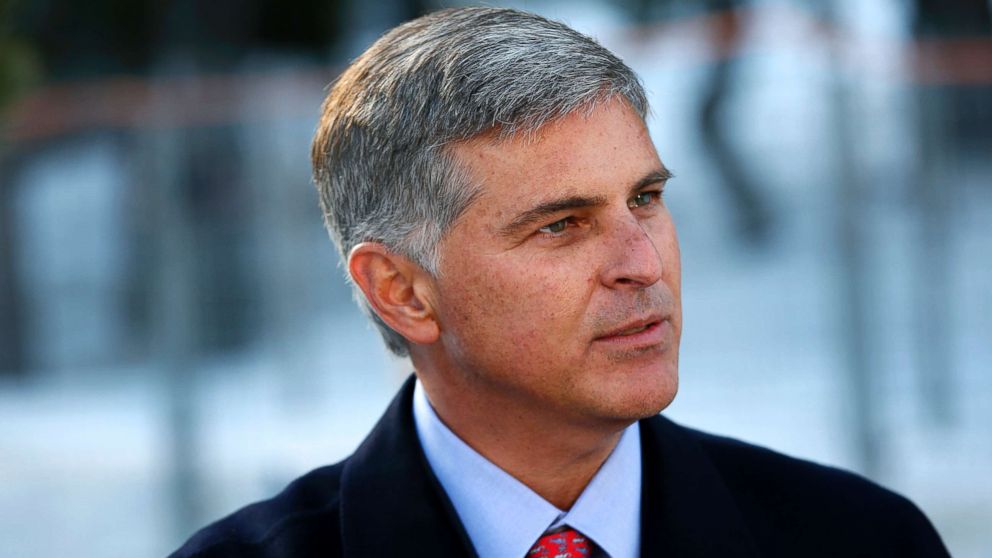The C-Suite Insider: Hilton Hotels CEO says 'I'm not worried' about Airbnb
Hilton Hotels CEO Christopher J. Nassetta clearly spends a lot of time on the road.
He was in New York City this week to announce a new line the century-old hotel company is launching later this year. Signia Hilton hotels -- the company's 17th brand -- aims to elevate conference hotels into a more modern, hipper experience.
Nassetta was on hand for a media Q-and-A session at a downtown Manhattan pop-up suite outfitted to look like a future Signia Hilton, with clean lines and metallic finishes more evocative of a Restoration Hardware store than a convention center hotel.
The northern Virginia native is credited with turning around Hilton. In 2007, private equity giant The Blackstone Group bought the company for $26 billion, and appointed Nassetta as chief operating officer (CEO).
Then the 2007-08 recession hit, and the Hilton acquisition was seen as an albatross for Blackstone. Last year, Blackstone checked out of its Hilton investment with $14 billion in profit, setting a record in private-equity investment in real estate.
Nassetta, who is in his mid-50s, is plain-spoken and adept at staying on message. He relocated the company's headquarters from Beverly Hills, California to McLean, Virginia. When he's traveling, which he said is about 75 percent of the time, he never checks luggage at the airport.
He said he has mastered packing one or two suits into the same fold-over, hanging Tumi garment bag that he's used for decades. The company has a casual feel, he said, and at his own conferences he said he often sports jeans and woolen Allbirds shoes.
After a breakfast with reporters, Nassetta told ABC News why he doesn't worry about competition from Airbnb, how the company has protected itself from cyber thieves and what he says to hotel guests in elevators.

So Airbnb is expected to IPO this year. How, if at all, would that affect you?
I know those guys and I think they have a good business model. I think we’re fundamentally in different businesses. Because hospitality is about taking a product, taking amenities, service, and people that are well-trained at delivering a consistent high quality branded experience by combining all those things. And that is just now what they do.
I’ve done massive amount of work -- focus groups, myself, our customers, theirs, everybody else’s – it all supports that people like that model and they like our model and they are two different things. They come to us for a very reliable high quality experience where they get their gym and their pool and their food and room service. And they go to them for a different kind of value proposition. So no, I’m not worried about them. There’s plenty of room for both of us to do really well.
How high end is Signia? What kind of conferences could it handle?
[It could] be small to mid-size, but also the mega meetings. That's why they're next to the convention center. There will be the 3,000 person meetings.
Like Herbalife-sized?
Yeah, we'll do whatever -- like our Hampton Inns general managers' conference. That's 2,000 to 3,000 people. We're our own best customer, in a sense.
I mean, I laugh when they try to schedule things like this. I give more speeches at our conferences -- which is good, because I get to see a lot of people. We have a lot of conferences. I came from our Atlanta Hilton -- which is a great Hilton, which is a big box -- because we had our global IT conference -- 500 of our global IT people. That's what I was doing yesterday.
How did you respond to, or change measures or practices after the Starwood/Marriott data breach?
We have been unbelievably focused on protecting our data, our customers' data, everybody in our ecosystem's data for years. And we have been investing way ahead of the curve both in terms of people -- we have some of the best cyber people money can buy, that come out of various governments -- and in technology: the most modern technologies to pick up when the bad guys are trying to get in.
By the way, everybody's at risk. It's a daily knife fight. But so far, I mean, we've had minor things that have been reported on over the last years, but nothing major. But we're vigilant about it but we have basically spared, and will continue to spare, no expense. We're doing what we need to do and so far, so good.
Having said that, every business is under assault. There are literally people trying to get into everything we have, billions of times a year. And we have people, guys and gals, that stay up 24 hours a day monitoring everything with technology to shut these people out and we haven't had any issues. And I'm hopeful we won't. And we will invest whatever it takes to make sure they don't.
Our head of IT digital came out of Capital One. We’ve drawn people in from government, financial services -- people who have had much more dire consequences. Government -—when people have nukes -— it’s like people die when something goes wrong. In our case, people aren’t going to die. We take it seriously. These are the kinds of people we have. We do it workman-like.
What do you say to someone whose loyalty points are with a competitor?
Try Hilton. We've got a better program, we've got better tech. If you don't like it, send me a note why you don’t like it.
I’m in the elevator in hotels all the time. Nobody knows who the hell I am. I say, "Hey, how’s your stay?" I’m just another lunkhead business traveler carrying my bags, and they say whatever they say. Then I’ll say, "Hey, why don’t you use your digital key?" Then I tell them, "I’m Chris, I’m the CEO of Hilton." I’m constantly doing that.
I get thousands of emails a week. I read them all. I can’t deal with them all, we have a whole team, but if it’s particularly heinous, I will deal with it.
By the way, I get a lot of good ones, too. It’s not like it’s 100 percent bad. It’s 60/40 because good experiences -- people don’t give you feedback -- but it’s a more even split than you’d think. But I look at all of that stuff.




